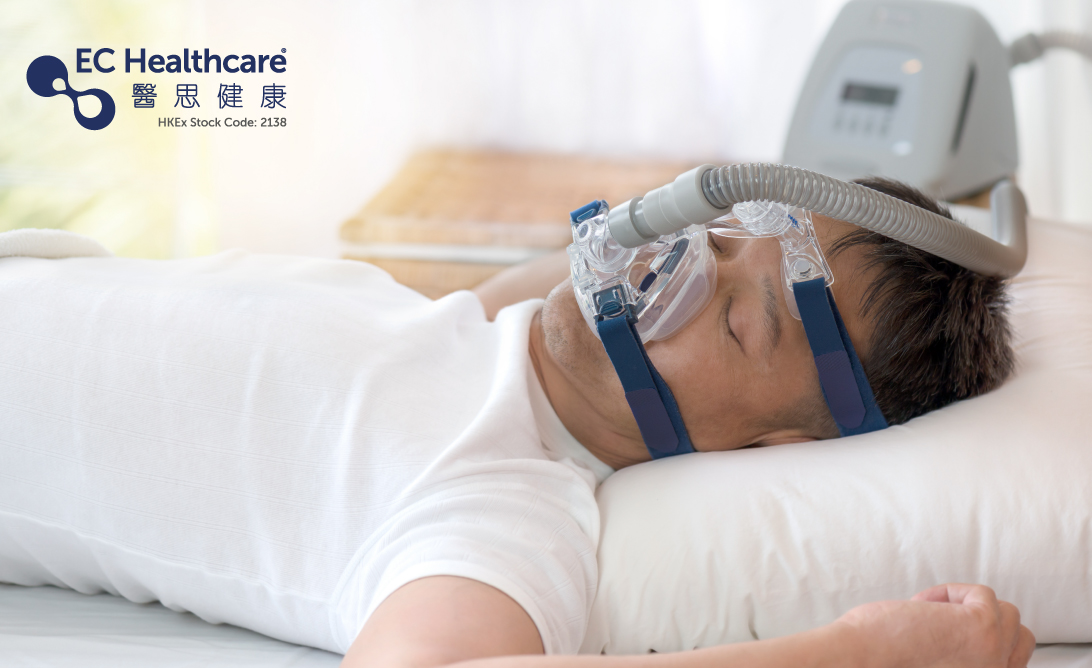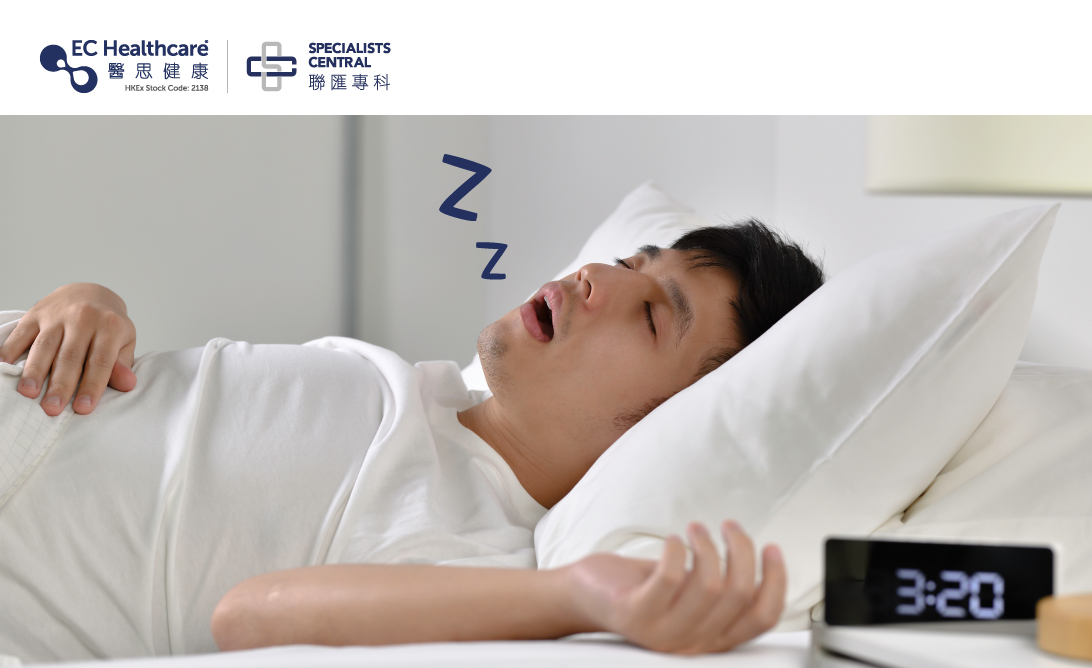Snoring Can Be a Sign of Sleep Apnoea Severe Cases May Lead to Cardiovascular Disease


Do you often doze off while watching television, reading a book, attending a meeting and even driving? When you are sleeping, does your partner complain about your snores disturbing his/her sleep? If you experience drowsiness and snoring, it could be a sign of sleep apnoea. Do not underestimate this condition as worsened and severe cases can lead to a higher risk of cardiovascular disease, causing hypertension, stroke and even sudden death.
What is sleep apnoea?
Sleep apnoea occurs when one’s upper respiratory tract (including the nasopharynx and larynx) experiences blockage periodically and regularly during sleep, leading to frequent breathing pauses and recurring episodes of hypoxemia. When the breathing stops for a while, the patient may suddenly gasp, causing loud snores in sleep. Severe cases may cause complete blockage of the respiratory tract and lead to asphyxia, largely affecting the sleep quality of the patient and his/her partner.
Sleep apnoea can be categorised into three types: obstructive, central and complex sleep apnoea. Obstructive sleep apnoea, which is the most common form, is caused by the soft tissues in the throat blocking the respiratory tract, narrowing or completely obstructing the airway, thus causing snoring and breathing pauses. Approximately 90% of the patients suffer from obstructive sleep apnoea.
Central sleep apnoea is a problem with the nervous system where the muscles that control breathing do not receive proper signals from the brain, hampering the breathing process. Most patients with central sleep apnoea have suffered from stroke or neurological disorders in the brain.
What is the cause of sleep apnoea?
The most common causes are obesity which narrows the respiratory tract or poor muscle tone which causes muscles in the respiratory tract to relax easily. Some clinical cases are caused by large tonsils that narrow the airway.
Common symptoms of sleep apnoea
Sleep apnoea not only affects sleep at night with night-time waking and sleep deprivation, but also hinders activities during the day, such as by causing chronic fatigue, poor energy, headaches, drowsiness, concentration difficulties and tinnitus.
What happens if sleep apnoea is not treated?
If you overlook sleep apnoea for a long time, the condition may increase the risk of cardiovascular diseases such as hypertension, coronary heart disease, arrhythmia, congestive heart failure, myocardial infarction, stroke, and even sudden death in severe cases. You should never underestimate the condition.
Even if no cardiovascular disease is present, sleep apnoea also largely affects daily life, such as by causing drowsiness and concentration difficulties during the day which lower work productivity. It accelerates memory loss and triggers the early onset of dementia. It may also cause changes in one’s temperament such as anxiety, irritation and restlessness, and even lead to depression and insomnia, etc.
If you experience the above symptoms, seek medical attention as soon as possible.
Related Brands


